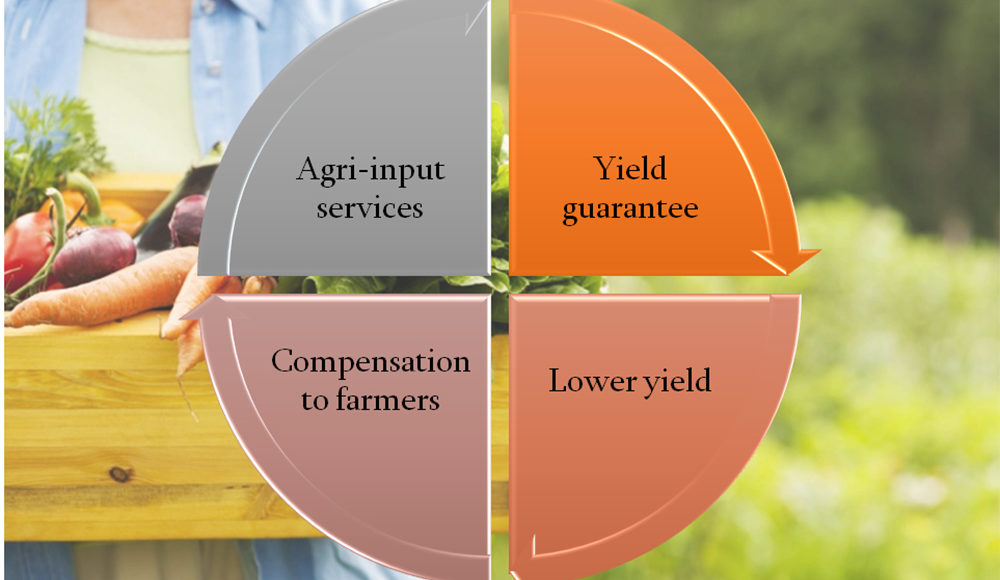
Outcome based-model of agriculture : Fact or Fiction
Recently in an interview, Liam Condon, President of Bayer Crop Science division, mentioned that they are looking towards futuristic agriculture model where the focus, at least for them, would be the outcome based model. Elaborating on this, he said that “We want to create an outcome-based model. Instead of selling inputs, ultimately, we would sell a weed-free field, disease-free field, or a yield guarantee by selling a prescription for how to get there. If the outcome didn’t happen, then we would compensate the farmer.”
Today the idea of outcome-based model is similar to the idea of online retail stores for daily use items like clothes, electronics, groceries etc. in 80s and 90s of the twentieth century. People never believed that online stores were possible. However, once the right technologies became available to the general public at affordable costs, online retailing became a norm, and today almost everything under the sun can be ordered online with established service providers stores like Amazon, eBay, Flipkart etc. Likewise, the outcome-based model may seem too good to be true today, it’s not impossible to achieve, if we take a closer look at the directions global agriculture has been moving in the last three decades. Some of the following are being practiced even today and are the steps in the direction to an outcome-based modelthat would be be beneficial to all stakeholders involved
- Use of targeted trait integration in seeds,
- Use of precision tools for stress identification,
- Soil health assessment and management,
- Crop specific advisory for sowing of specific hybrids on a specific patch of land,
- Well-planned sowings based on weather forecast,
- Continuous monitoring of crops using scientific methods,and
- Crop and disease management.
If such a model for agriculture were to be developed and implemented, precision technologies coupled with big data analytics will play a critical role to make this successful. The farmers, whether from a developing or developed country, are convinced that efficiency is the key to any farming activity and they are willing to invest in technologies that will lead to efficient agriculture with increased profitability. The advent and evolution of precision technologies like sensors, imaging, drones and several other technological advancementsare leadingthe digital transformation of agriculture. However, the single deciding factor about for managing farm operations in future will be the way Big Data is utilized and hasten the delivery of outcome-based agriculture servicesto the farmers. This will be more important as the available arable land is expected to decline over a period of time and global population increases.
To achieve these goals, agricultural outcomes need to be optimized. The operations using precision agriculture will lead to the realization that Big Data helps in improving the yields and outcomes for farmers and stakeholders in the food chain. Some service providers have already begun to bundle smart digital farming insights and improvements to deliver products and services for precise and integrated agricultural solutions. Some examples are Climate Corporations’ the “Climate Field View”, various applications under “Precision Ag” by John Deere etc. The applications like these coupled with security of insurance for the farmers are optimizing outcomes based on farmer’s individual requirements. Initially such services will be focused on the farmers.The scopeof services is expected to widen when the supply chain gets digitized. The success will be further boosted by artificial intelligence based on Big Data supported by precision tools that can predict demands of particular commodities optimizing the usage of limited storage and production space as required.
With the technological advancements happening globally at break-neck speed, though more so in developed countries, their benefits and reach will not be limited to farming communities in few countries. The globally connected agriculture is benefited by the presence of MNCs in different countries which coupled with trickling down effect of advanced technologies will ensure the advent and success of outcome-based model of agriculture sooner than later.
Author

AVP in Life Sciences Advisory Group
 Grow Beyond
Grow Beyond 

